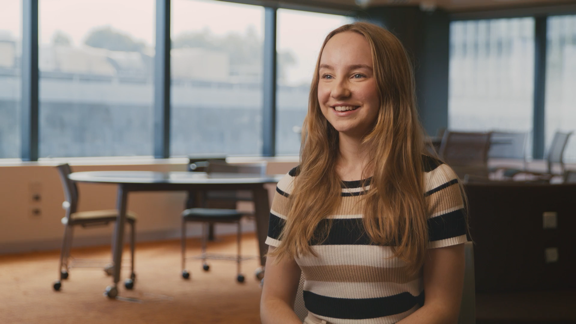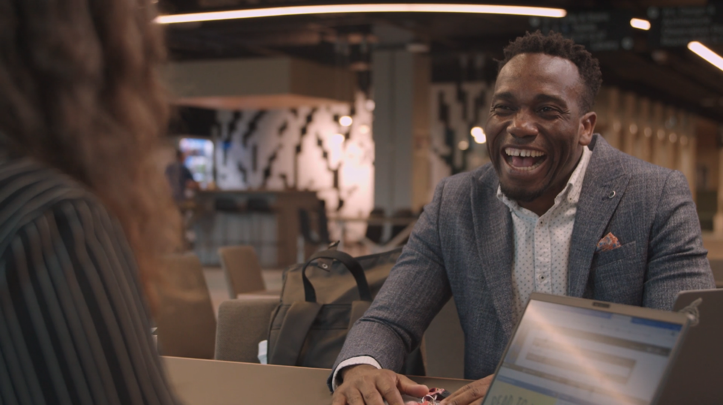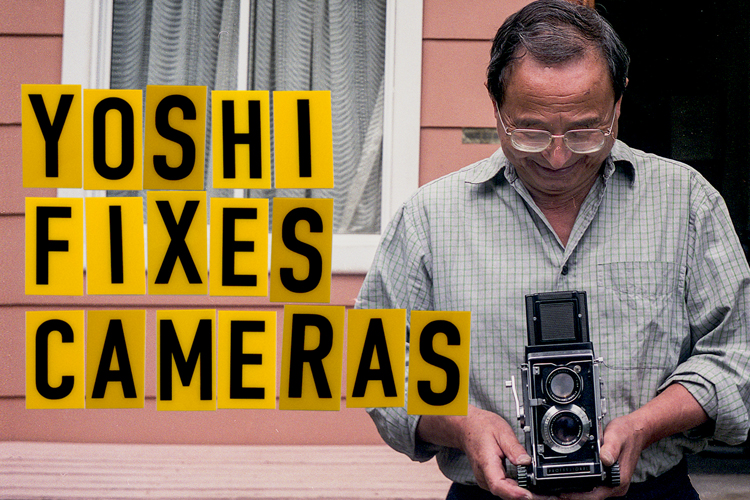Getting Started with Podcasting: A Comprehensive Guide
10 min read
So you’re interested in starting your own podcast? Great!
Podcasting is a powerful medium for education, entertainment, and storytelling. But before you rush in to record, there are a few things you should know. In this article, we’ll cover a range of topics including planning, format, equipment, distribution, and consistency. So whether you want to do it yourself, or engage a podcast production agency to do it for you, you’ll find value here. Let’s get started.

What should you talk about?
To start a podcast, the most important thing you need to have is something to say. A perspective, expertise, story, concept or something else unique to you. Choose a topic that you’re passionate about. It’s also important to consider your target audience. Who are you trying to reach with your podcast and what do they want to hear? This is especially important if your goals are aligned to your business.
Here are some tips for choosing a topic:
- Choose a topic that you’re interested in and passionate about. This will make it easier to stay motivated and engaged with your podcast.
- Consider your target audience. Who are you trying to reach with your podcast? What kind of information or entertainment are they looking for?
- Do some research to see if there’s an audience for your topic. There are a number of ways to do this, such as searching for podcasts on similar topics and reading online forums.

Format.
The next step is to decide on a format for your podcast. Will it be a solo show, an interview show, a panel discussion, or an investigative show? What will the structure of the show be? How long will each episode be? Will it require scripting or research? It’s important to choose a format that works well for your topic and your audience.
It’s also important to remember that you are making a show – something designed to entertain people and hold their interest, no matter your material. So it’s important to think about how you deliver the information – what is the tone and feel of the show. How are you going to come across as a host?
Here are some tips for choosing a format:
- Consider the length of your episodes. Episodes can be anywhere from a few minutes to an hour or more. Choose a length that works well for your topic and your audience.
- Decide on a format. There are many different podcast formats to choose from, such as solo shows, interview shows, and panel discussions. Choose a format that works well for your topic and your personality.
- Episode structure. Guide your listeners through the your episodes and listening experience – make it easy for them to follow along and understand.
- Keep your episodes consistent. Once you’ve chosen a format, stick with it. This will help your audience get used to your podcast and know what to expect.
Once you’re clear on these steps, it’s time to think about how you are actually going to produce the podcast.
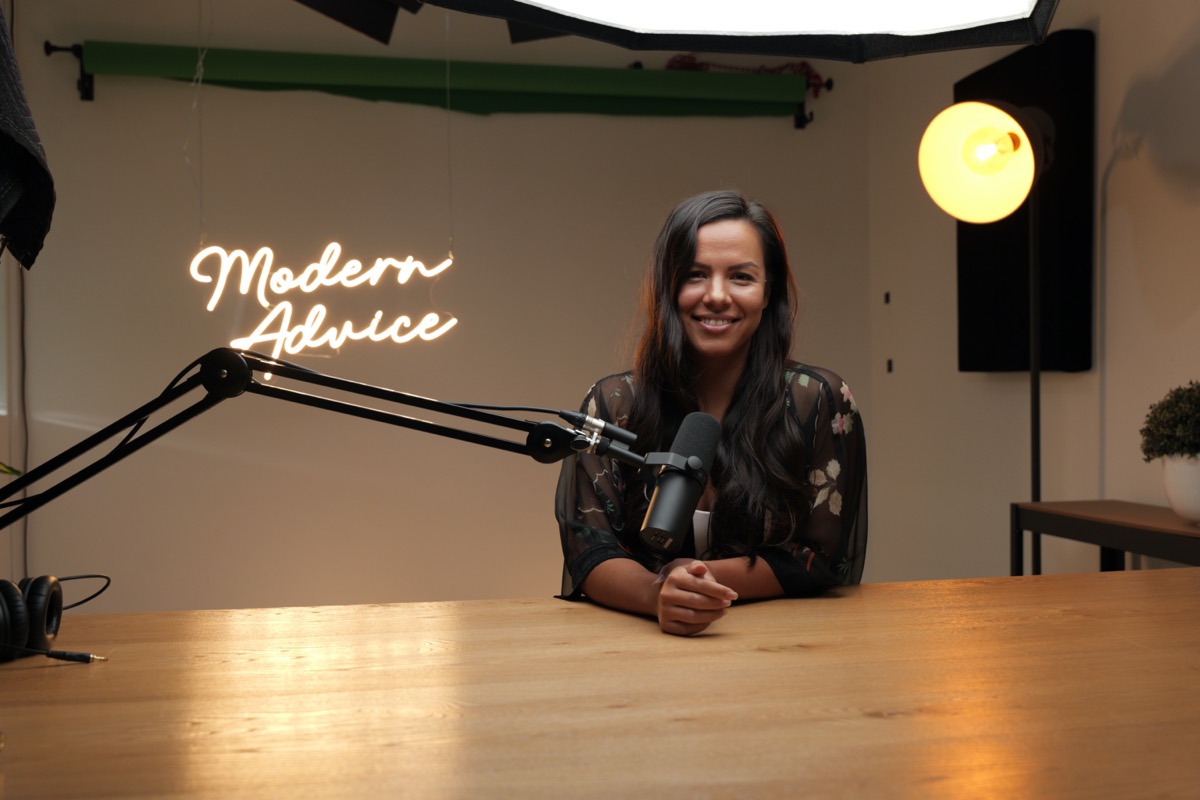
Production.
When thinking about recording and editing your podcast, you can either go the DIY route if you’re on a budget, or you can engage a podcast production agency to take the hassle out of the production.
If you plan on going the DIY route, the first step is to gather the necessary equipment. It’s tempting to just hop on a Zoom chat and record a conversation – and there’s your podcast. We get it – it’s easy to do this and get a result. But think about creating an enjoyable listening experience for your audience – and this comes from not just your content, but also the sound. So, at a minimum, invest in a decent microphone, headphones, and a computer. If you’re serious about podcasting, you may also want to invest in a mixer/audio interface, soundproofing, and editing software.
Allow time and a learning curve for learning how to use your equipment. Here are some tips for choosing the right equipment:
- Microphone: A good microphone is essential for capturing clear audio. There are a variety of different microphones available, so you’ll need to choose one that fits your budget and needs. If you’re recording yourself, make sure you do so in a room that minimises sound reflection – you don’t want to sound like you’re in a cave. This can be a room with carpet and a lot of furniture, which can help prevent sound reflections.
- Headphones: Headphones will help you monitor your audio and ensure that your podcast sounds its best. If you’re recording online, they’re essential to prevent mic ‘bleed’ from your guest’s audio into your mic.
- Computer: Any computer can be used for podcasting, as long as it meets the requirements to record, edit, and distribute your podcast.
Another consideration in the production of your podcast is the logistics. If you plan on having guests: how are you going to reach out to and secure their involvement? What about the scheduling?
Producing a podcast on your own can be a lot of work juggling responsibilities around research, writing, technical expertise, guest reachout, availability and scheduling, editing and distribution. If you’re not prepared to do this work, this will show up in your final product. Allow time for this, or if you’d prefer to just do the talking with minimal ‘homework’, consider engaging a podcast production agency to do this for you.
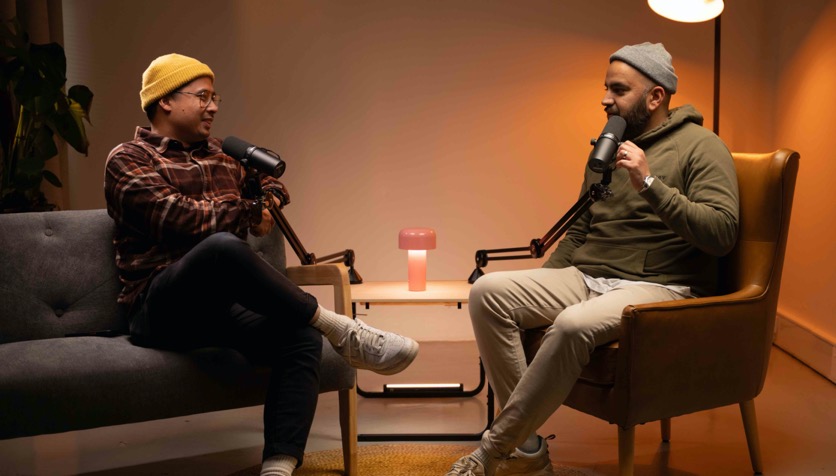
Distribution.
Once you’ve recorded your podcast, you need to distribute it to your audience. There are a number of different ways to do this, including podcast hosting platforms, social media, and email marketing.
Here are some tips for distributing your podcast:
- Choose a podcast hosting platform. There are a number of different podcast hosting platforms to choose from, such as Simplecast, Libsyn, Podbean, and Buzzsprout. Choose a platform that fits your budget and needs.
- Promote your podcast on social media. Social media is a great way to connect with your audience and promote your podcast. Share your full episodes and/or clips on platforms like Youtube, Instagram, TikTok, Twitter, Facebook and LinkedIn. Think about what formats are needed for your creative assets.
- Use email marketing to stay in touch with your audience. Email marketing is a great way to stay in touch with your audience and promote your podcast. Send out regular emails with updates on your podcast and links to your episodes.
- Re-purpose podcast content. The content and information shared on podcasts is ripe for repurposing via other means – such as written blogs and articles for your website, EDM, or LinkedIn. Consider how you can maximise your ROI by repurposing podcast content.
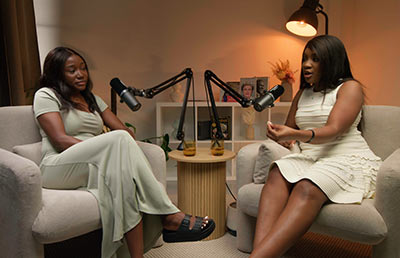
Consistency.
One of the most important things for a successful podcast is consistency. Choose a regular schedule for your podcast and stick to it. This will help you build an audience and keep them coming back for more. Podcasts are habitual in nature – people listen to them tied to a habitual behaviour, such as commuting to work, at the gym, going for a walk, cleaning the house. To take full advantage of this, consider a publishing schedule no less frequent than fortnightly. Podcasts that require a lot of writing and research (such as investigative, documentary style podcasts) may require a longer publishing schedule, but this is often warranted by the content and listening experience.
Here are some tips for staying consistent:
- Set realistic goals. Don’t expect to become an overnight success. It takes time to build an audience and grow your podcast. Podcasts can have a long tail and should not be seen as a lead gen tool for businesses initially.
- Be patient. Podcasting is a long-term game. It takes time to build an audience and see results.
- Have fun! Podcasting should be enjoyable. If you’re not having fun, your audience won’t either.

The final word.
Podcasting can be a great way to share your voice with the world, but it’s important to think about each step so that you can create content that matters and avoid content for the sake of it.
By following these tips, you can get started on your podcasting journey today. Good luck.
Are you looking for help from a podcast production partner to create your podcast?
Drop us a line and let’s talk about making your vision a reality.
